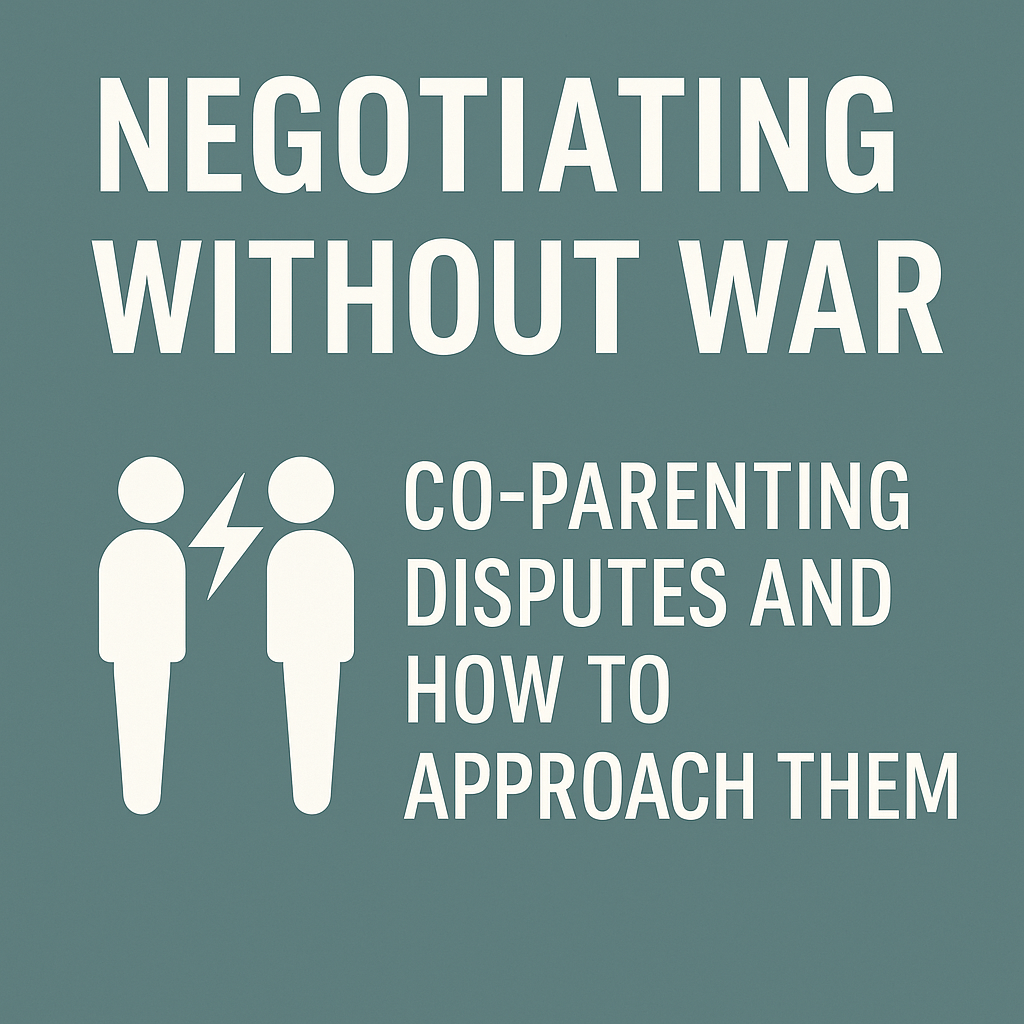
Co-parenting disputes rarely announce themselves as dramatic battles. They usually sneak in through the side door, disguised as small inconveniences: a thirty-minute drive added to the routine, a drop-off that suddenly feels less fair, or a tweak in the schedule that throws everything off balance.
From the outside, it seems simple. But if you’ve ever lived through co-parenting negotiations, you know those “little” conflicts can carry far more weight. What starts as a scheduling hiccup can morph into a test of fairness, credibility, and even identity.
That’s because every dispute has layers:
The logistical conflict — who drives, when, and where.
The mindset conflict — whether to lean on emotional intelligence or escalate into a $10,000 legal fight.
The identity conflict — deciding whether this is “the hill to die on.”
I recently watched all three collide in a social media thread where one parent, tasked with giving their Parental Coordinator/Decision-Maker (PC/DM) options, turned to the community for advice.
Layer 1: The Surface Conflict
Her co-parent had moved thirty minutes away. For the past year, they had followed a simple pattern: whoever’s parenting time ended did the drop-off. It wasn’t written into their plan, but it worked.
Now, with extra distance, she had to propose new options to the PC/DM. How should this change play out? Should the schedule adjust? Should the drop-off arrangement shift?
On paper, it looked like a straightforward logistics problem. But cracks were already forming beneath the surface.
Layer 2: The Mindset Conflict
In the same thread, this parent also wrote: “This will cost you about $10k in legal fees if it’s disputed.”
That single line said everything. On one hand, she was seeking advice and collaboration. On the other, she was already framing the conflict through the courtroom lens. In her mind, this was no longer just a commute — it was potentially a legal war.
This is the crossroads many parents face. Do you:
Treat the issue as a solvable adaptation?
Or prepare for lawyers, courtrooms, and spiraling costs?
The answer matters because once litigation becomes the default, credibility and resources begin to drain quickly. That’s why the resolution ladder exists:
PC/DM’s can settle disputes before they explode.
Mediation offers a chance to negotiate with neutral support.
Court should be the final stop, not the first instinct.
The difference between a $10k legal fight and a calm adjustment often comes down to one skill: emotional intelligence.
Layer 3: The Hill to Die On
Later in the thread, she admitted she was deciding “what hill to die on.”
That phrase revealed the deeper layer. This was no longer about logistics. It had become about principle, control, and fairness — the identity level of the conflict.
This is where negotiations derail. Parents convince themselves that every inconvenience is a matter of dignity. Every compromise feels like surrender. And in the process, they risk credibility in the eyes of coordinators, mediators, and judges — not to mention the stability their child needs most.
My recommendation was simple: preserve the drop-off routine, adjust slightly for distance, and frame the request around protecting the child’s predictability. On the surface, it solved the commute. Underneath, it redirected the conflict away from pride and back toward peace.
The Ironclad Remedy
Parents shouldn’t be left scrambling for advice threads or deciding what hills to die on. That’s why a strong parenting plan matters.
An Ironclad Parenting Plan doesn’t just divide time; it anticipates disputes. It defines exchanges, outlines travel responsibilities, and builds in a dispute-resolution protocol — so parents don’t have to improvise under pressure.
Our guides covers over 60 variables — from close-proximity exchanges to long-distance transitions. That structure prevents small disagreements from spiraling into “$10,000 hills to die on.”
Final Thought
Every co-parenting dispute carries three layers: the logistics, the mindset, and the identity. Without recognizing those layers, small changes can snowball into major battles. But when parents approach disputes with emotional intelligence — supported by an ironclad plan — they replace chaos with clarity and conflict with stability.
Because co-parenting isn’t about dying on hills. It’s about building frameworks strong enough to hold peace, credibility, and predictability for the child at the center.
🔄Did you find this article helpful? Share it!

About the Author - Danny DeJesus
Danny De Jesus is a transformational resilience thought leader, strategic thinker, and the founder of Elevatus Coaching—a practice built to help people rebuild their lives after major change. Drawing from his own experiences with divorce, co-parenting, and career shifts, he created the C2R2E Framework to guide people from collapse to elevation with clarity and confidence. Through the Elevatus Blog, he shares insights for anyone navigating disruption, rebuilding direction, or shaping a new chapter with purpose.
